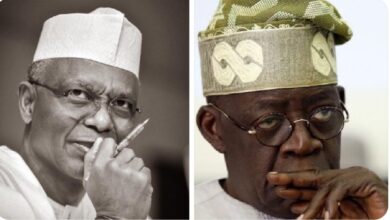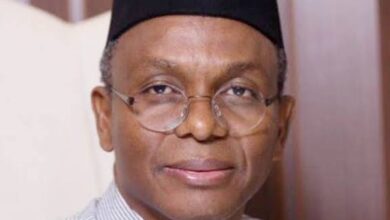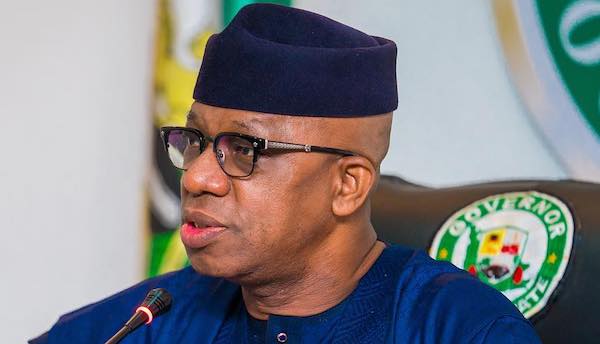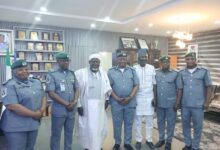Nigeria’s election tribunal confirms Bola Tinubu’s Feb 25 victory as President
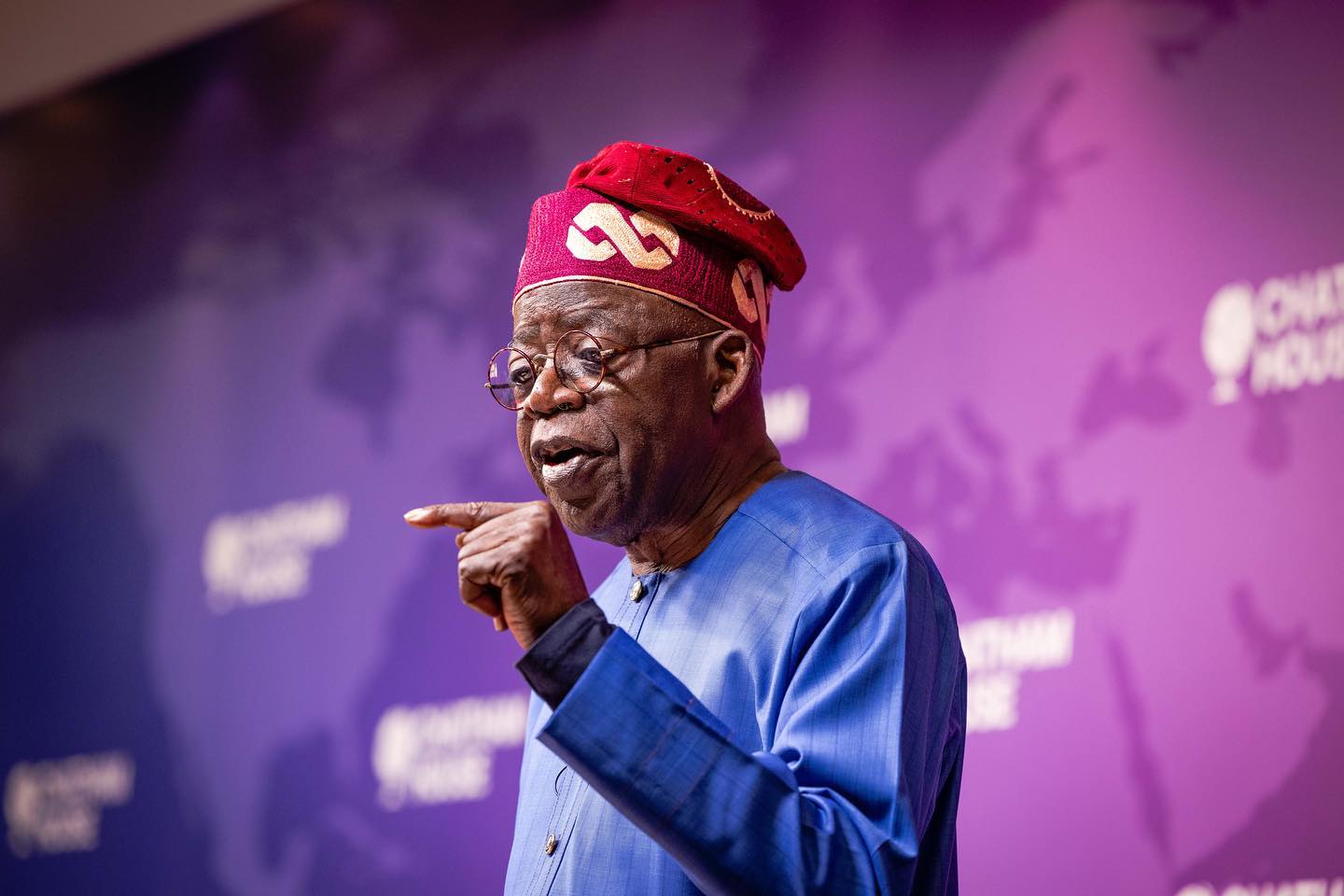
*Dismisses Atiku, Obi’s petitions seeking upturning of his declaration
By KEMI KASUMU
In the view of an international press organisation, “No legal challenge to the outcome of a presidential election has succeeded in Nigeria, which returned to democracy in 1999 after three decades of almost uninterrupted military rule and has a history of electoral fraud.”
Nigeria President Bola Tinubu arrives for the closing session of the New Global Financial Pact Summit, on June 23, 2023 in Paris. (Photo by Lewis Joly / POOL / AFP)
Currently, Tinubu is in India for the G20 summit, where he hopes to drum up foreign investment. [File: Lewis Joly/AFP] September 6, 2023.
The Nigeria’s Presidential Election Petitions Tribunal (PEPT), Abuja, has given its long awaited ruling, upholding the victory of President Bola Ahmed Tinubu in the February 25, 2023 election in the country.
The Tribunal, sitting at the Court of Appeal in the nation’s capiral, held that the Nigeria’s main opposition parties failed to prove their claims of electoral malpractices against the governing All Progressives Congress (APC) in the disputed February’s presidential elections, during which widespread violence among other electoral crimes and offences were reported across the Nigerian media especially electronics.
“This petition is hereby declared unmeritorious,” one of the judges said, as the tribunal rejected the opposition challenge to Bola Ahmed Tinubu’s win in the presidential election.
The challenges came after one of the country’s most tightly fought elections, in which former Lagos governor Tinubu won 37 percent of the vote, beating Atiku Abubakar of the People’s Democratic Party (PDP) and Peter Obi of the Labour Party to secure the presidency of Africa’s most populous nation.
Abubakar and Obi had asked the court to invalidate the election, alleging irregularities.
Judges rejected all claims made by Labour Party candidate Obi, including fraud, charges electoral authorities broke the law and allegations Tinubu was ineligible to run.
The court was also reading its judgement on a second opposition party petition, which is also expected to be dismissed. Filed by PDP candidate Abubakar, it lays out similar complaints against the February 25 election results.
In the view of an international press organisation, “No legal challenge to the outcome of a presidential election has succeeded in Nigeria, which returned to democracy in 1999 after three decades of almost uninterrupted military rule and has a history of electoral fraud.”
Atiku and Obi can appeal to the country’s Supreme Court to strike down the tribunal’s ruling but, if that must happen, such appeal must be concluded within 60 days of the date of the tribunal judgement.
Tinubu’s government had dismissed all claims of wrongdoing and had declared his not losing any sleep over the awaited ruling as he jetted out of the country, appearing confident of victory before the Wednesday’s decision.
Currently, he is in India for the G20 summit, where he hopes to drum up foreign investment.
While favourable to Tinubu, the tribunal’s ruling was unlikely to generate any particular euphoria or momentum for the president after an election marked by a record-low turnout of 29 percent, The DEFENDER reports reactions of some international press.
“In a nation of more than 200 million people, of whom 87 million were registered to vote, Tinubu garnered just 8.79 million votes, the fewest of any president since the return to democracy,” Al Jazeera particularly stated of the election the nation’s electoral umpire said was free and fair.
The Independent National Electoral Commission (INEC) introduced biometric technology and IReV, a central database for uploading results in real-time to ensure transparency.
INEC acknowledged “glitches”, dismissed claims the vote was not free and fair, but critics said the technical problems and delays had allowed opportunities for vote manipulation.
The court ruling, on Wednesday, was coming as Nigerians struggle with a rising cost of living after the government ended a fuel subsidy programme that, until its coming on may 29, had kept fuel pump prices low and also freed up the naira currency.
Since the inaugural speech of the President, Tinubu, fuel prices have increased three times from N184, N185 cap left behind by former President Muhammadu Buhari, first, to Nbetween N488 and N537 through NN560 and, now, N617 with a Naira currency that now stands at between N960 and N1,000 to one US Dollar.
Government officials say the policies are needed to revive the economy, calling for patience and supplying state governments with funds to help offset the impact.
Tinubu, of same ruling APC with his predecessor, Buhari, now claims to have inherited anaemic economic growth, high unemployment, the highest inflation rate in two decades, record debt, massive oil theft that has hit government revenue and widespread insecurity from him.
The government is also tackling huge security challenges, from armed groups still fighting a long war in the North East to intercommunal clashes and kidnap gangs operating in other regions, especially the North Central and South East.


